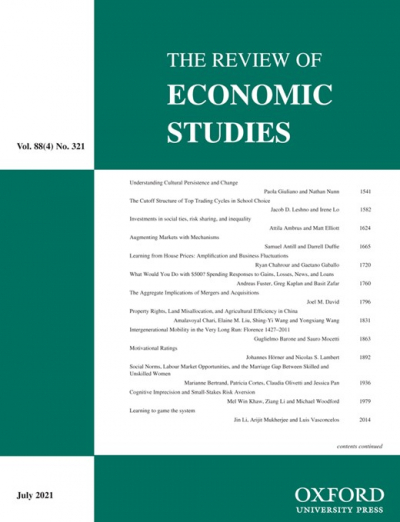Investments in social ties, risk sharing, and inequality
Authors
Ambrus, A; Elliott, MAbstract
This article investigates stable and efficient networks in the context of risk sharing, when it is costly to establish and maintain relationships that facilitate risk sharing. We find a novel trade-off between efficiency and equality: the most stable efficient networks also generate the most inequality. We then suppose that individuals can be split into groups, assuming that incomes across groups are less correlated than within a group but relationships across groups are more costly to form. The tension between efficiency and equality extends to these correlated income structures. More-central agents have stronger incentives to form across-group links, reaffirming the efficiency benefits of having highly central agents. Our results are robust to many extensions. In general, endogenously formed networks in the risk-sharing context tend to exhibit highly asymmetric structures, which can lead to stark inequalities in consumption levels.
Citation
Ambrus, Attila, and Matt Elliott. “Investments in social ties, risk sharing, and inequality.” The Review of Economic Studies 88, no. 4 (July 1, 2021): 1624–64.

